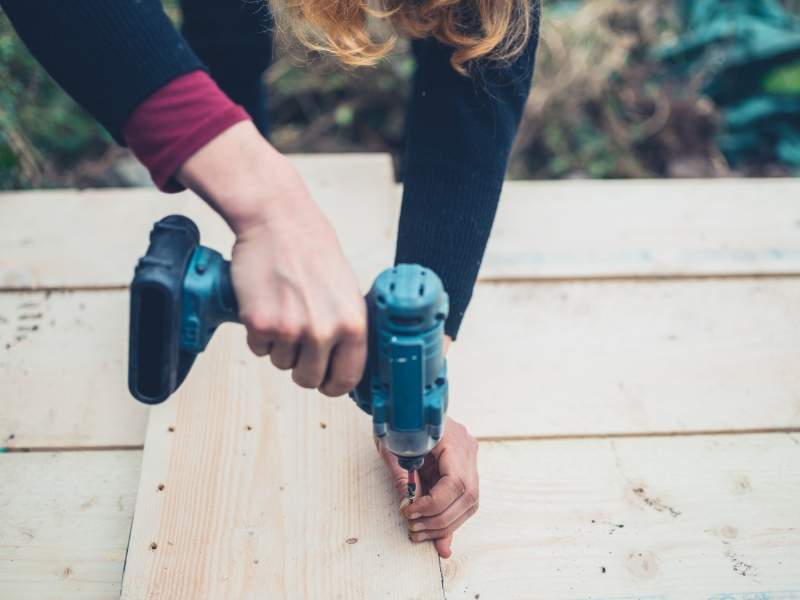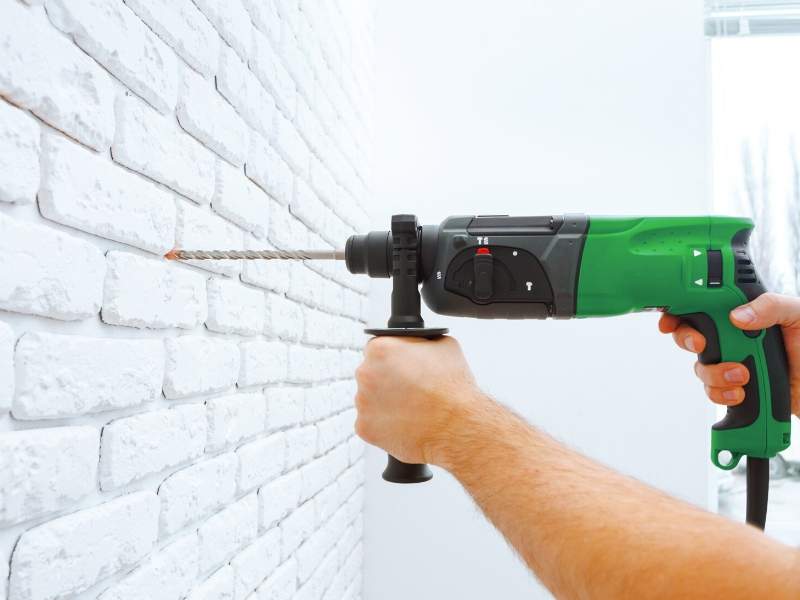It’s no secret that we’re a DIY loving nation. I might be because we like to save money or because we like the sense of achievement from the project completion. Whatever the reasons, it’s fair to say you need the right set of tools to get the job done. This is where the great debate of hammer drill VS impact drill comes into play. Here are some tips to help you get the right tool for your project.
How Do You Choose Either a Hammer Drill or an Impact Drill?

⎆ First things first, what are hammer drills and impact drills?
Hammer drills are specifically designed to create holes in hard materials like concrete, marble, granite, and brick. They are for heavy-duty tasks. One such task is to drive fasteners into the concrete. To do this, the mechanism behind a hammer drill “pounds” the drill bit forward into the material.
They are similar to hammer drills in that they are good for tough materials. Moreover, impact drills are able to loosen and drive fasteners, screws, and bolts into the material. However, they also drill holes – which is why they are sometimes called impact drivers.
Impact drills, however, use a rotary power of the motor to drive the screw forward, similar to a power drill. However, unlike a power drill, when the maximum force of the motor is insufficient, the hammering mechanism kicks-in.
⎆ What’s the difference between a hammer drill and impact drill?

Both drills are suited for specific purposes and understanding how they operate will dictate which one should be a staple in your arsenal. Hammer and impact drills may on the surface look similar but dig a little deeper and you’ll see that hammer drills have a longer barrel and tend to be heavier, whereas impact drills tend to be a little bulkier in appearance.
Hammer drills are perfect for those times when you need to drill holes into tough materials. And impact drills are ideal for those times when you need to remove rusted or over-torqued screws, as well as drive screws into a tough material.
While both kinds of a drill can be used on lighter materials like wood – a regular power drill is more than capable – and less expensive.
⎆ Which Drill to Choose?
Like any investment, deciding what you use the drill for, and how often you need it helps you make your decision. For instance, if your primary purpose is to do masonry work, then a hammer drill most suits your needs. This is especially ideal if you’re doing professional-level construction.
If you’re a DIY enthusiast, you may find that an impact drill from a company like SGS Engineering is the better buy – not only are they often less expensive than a hammer drill, but the versatility it offers gives it the edge. Most DIY projects tend to avoid any major building work, however, if you require something a bit more heavy-duty, renting a hammer drill may be a better option for you. Moreover, if you rent one frequently, then perhaps look at investing in a hammer drill.
The Ultimate Guide to Home Maintenance
4 Things You Need to Know Before Renting a House
Shhh! How to Soundproof Your Home for the Least Amount of Noise





